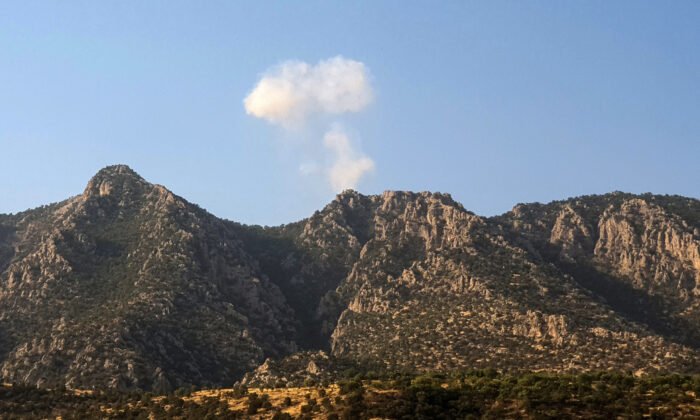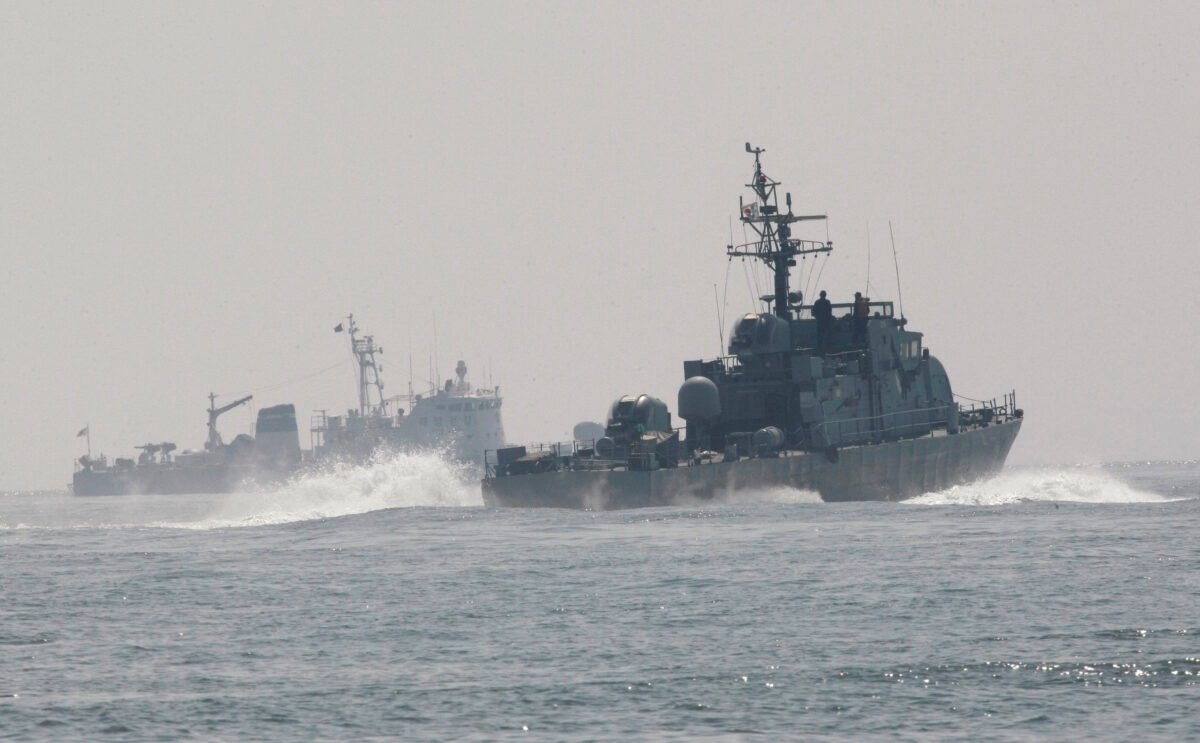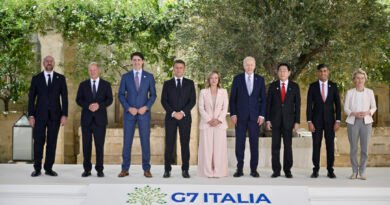New Agreement on Security Cooperation Signed by Turkey and Iraq in Ankara
Meanwhile, Baghdad said the expected announcement of an end date for U.S.-led coalition activities was abruptly postponed due to ‘developments.’
Turkey and Iraq signed a wide-ranging agreement on Aug. 15 calling for stepped-up bilateral cooperation in the military, security, and counter-terrorism fields.
Turkish Foreign Minister Hakan Fidan and his Iraqi counterpart, Fuad Hussein, signed the agreement in Ankara, Turkey’s capital.
“We want to advance the understanding we are developing with Iraq on counter-terrorism through concrete steps on the ground,” Fidan said at a joint press conference held after the signing.
“Through the joint coordination and training centers planned in this agreement, we believe we can take our cooperation to the next level,” he told reporters.
The exact terms of the deal remain unclear.
But Fidan stressed its “historic importance,” while Hussein called it the first of its kind “in the history of Iraq and Turkey.”
The signing followed two days of closed-door discussions, which were held under the rubric of ongoing high-level security talks between the two countries.
Since 2019, relations between Iraq and Turkey, which share a 235-mile border, have remained frosty due to repeated Turkish military operations in northern Iraq.
According to Ankara, the operations are meant to protect Turkey’s southeastern border from attacks by the Kurdistan Workers Party (PKK), which is based in northern Iraq’s Qandil Mountain region.
Within the past four years, Turkey has staged several major incursions into Iraq—and conducted numerous airstrikes—with the stated aim of “neutralizing” PKK targets.
Baghdad, meanwhile, says the incursions and strikes constitute violations of its national sovereignty.
‘Joint Steps’
Established in the late 1970s, the PKK claims to seek the creation of an independent Kurdish state in the region.
Over the past 40 years, the group has staged numerous attacks inside Turkey—against civilian and military targets—resulting in thousands of deaths.
Turkey, along with the United States and the European Union, regards the PKK as a terrorist group.
In March, Ankara welcomed a decision by Baghdad to label the PKK a “banned organization in Iraq.”
“I shared my belief that the PKK’s presence in Iraq will end,” Erdogan said at a joint press conference with al-Sudani.
“We discussed the joint steps we can take against the terrorist PKK organization … targeting Turkey,” Erdogan added.
Al-Sudani, for his part, said the two countries would cooperate to jointly secure their shared border and collectively act against non-state armed groups.
He did not, however, specifically mention the PKK.
During Erdogan’s visit, the two leaders agreed to begin holding regular high-level security talks, the fourth round of which took place this week in Ankara.
He added that talks between Turkish and Iraqi officials had also “explored additional cooperation opportunities and expressed our [Turkey’s] satisfaction with Iraq’s decision to close three political parties linked to the PKK.”
The freshly signed security deal calls for the establishment of a “coordination center” in Baghdad—jointly run by Iraq and Turkey—to direct counter-terrorism efforts, according to Turkey’s state-run Anadolu news agency.
Under the agreement, a second center will be set up in Iraq’s northern town of Bashiqa, where the Turkish military established a limited presence—without Baghdad’s consent—in 2015.
The coordination centers will allow the two countries to collaborate in the fight against terrorism, especially against the PKK, Turkish diplomatic sources told Anadolu.

‘Inherent Resolve’ Stays Put
While the Ankara meeting was underway, Baghdad postponed the planned announcement of a date for ending U.S.-led coalition activities in Iraq due to recent “developments.”
Iraq’s foreign ministry, which made the announcement, did not identify the developments in question.
In a statement, however, the ministry said that the U.S.-Iraq Higher Military Commission, comprised of officials from both countries, had discussed the prospect of withdrawing advisers from military sites in Iraq.
Following several recent U.S. strikes on Iraqi militant targets, calls have mounted in Baghdad for the departure of U.S.-led coalition personnel and an end to the coalition’s mandate.
After a U.S. strike on Baghdad in January, al-Sudani, Iraq’s prime minister, stated his “firm position on ending the international coalition [in Iraq] now that the justification for its existence has ended.”
“Let’s agree on a timeframe,” he said at the time, “so they [U.S. forces] don’t remain long, and attacks don’t keep happening.”
The following month, after a U.S. strike killed an Iraqi militia commander, Iraqi army spokesman Yahya Rasool called the U.S.-led coalition “a factor for instability” in the region.
An estimated 2,500 U.S. troops are currently stationed in Iraq as part of a U.S.-led coalition, dubbed “Operation Inherent Resolve,” tasked with combatting the ISIL terrorist group.
U.S. forces deployed in Iraq remain in the country based on an agreement with Baghdad.
Earlier this year, Washington and Baghdad established the U.S.-Iraq Higher Military Commission with the stated aim of setting a timeline for winding down coalition activities.
Despite several months of discussions, however, the commission has yet to announce an official termination date for the coalition’s mandate in Iraq.
“At no point did we discuss the withdrawal of U.S. forces from Iraq,” he said, “but we continued to discuss the transition to … a bilateral security partnership.”
“These discussions are ongoing,” Vedant told reporters.
Reuters contributed to this report.






